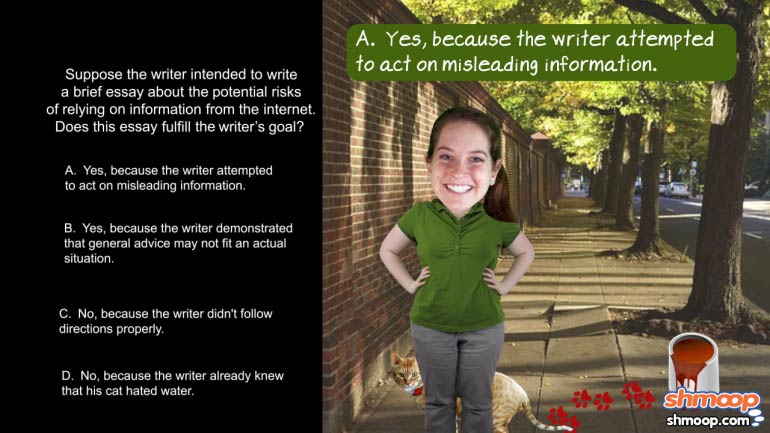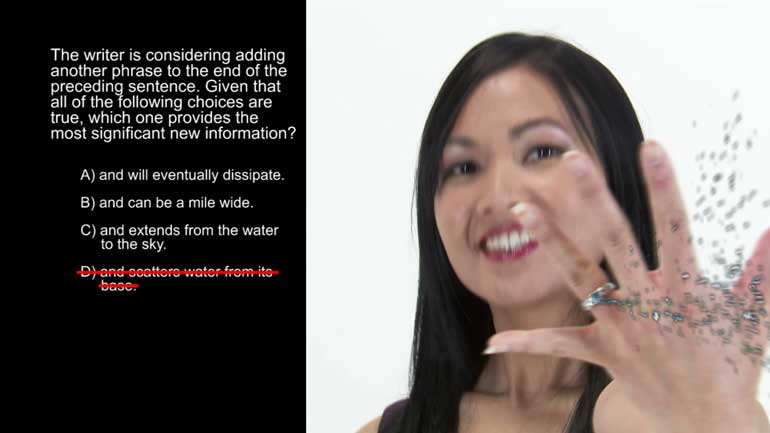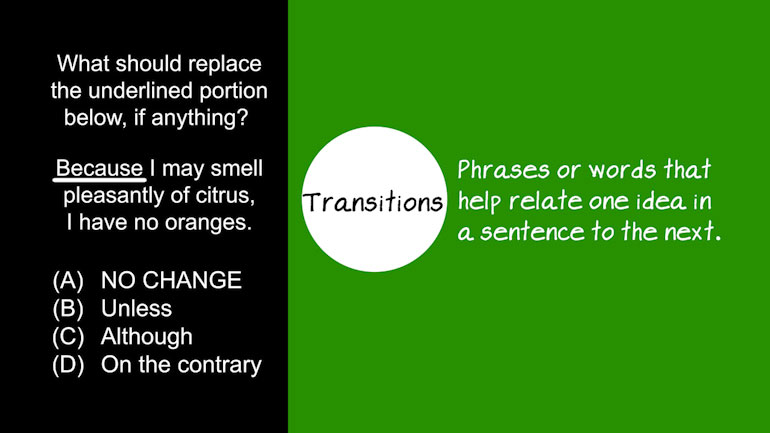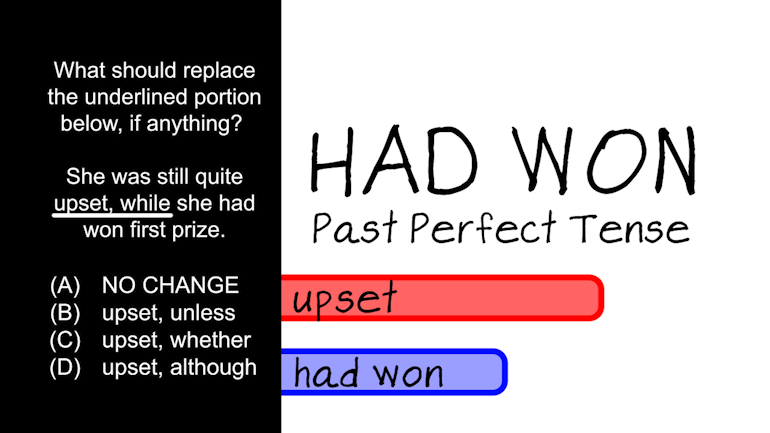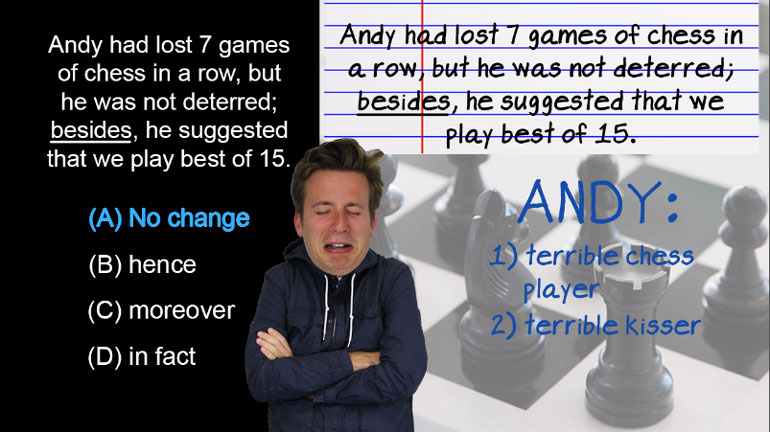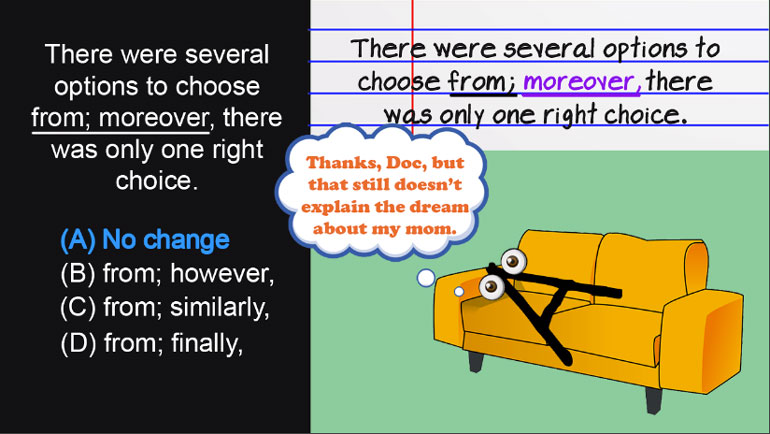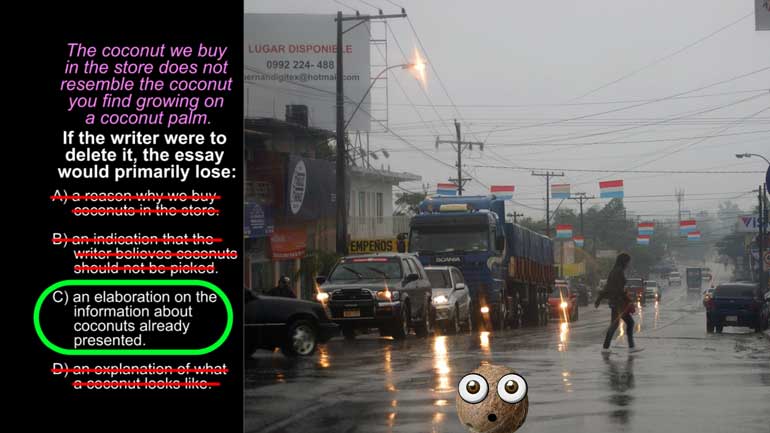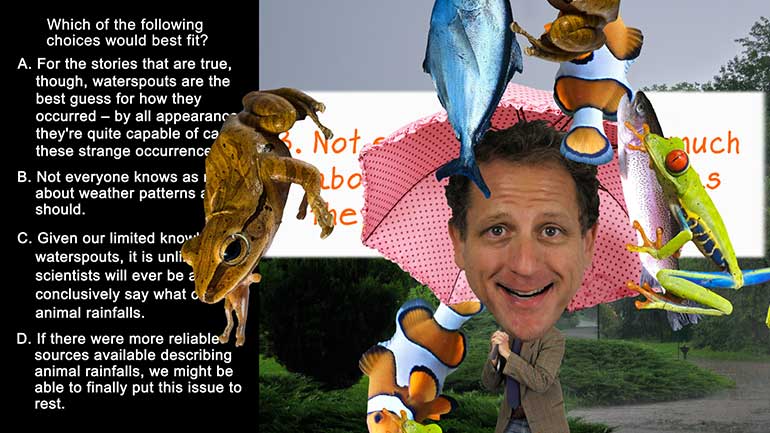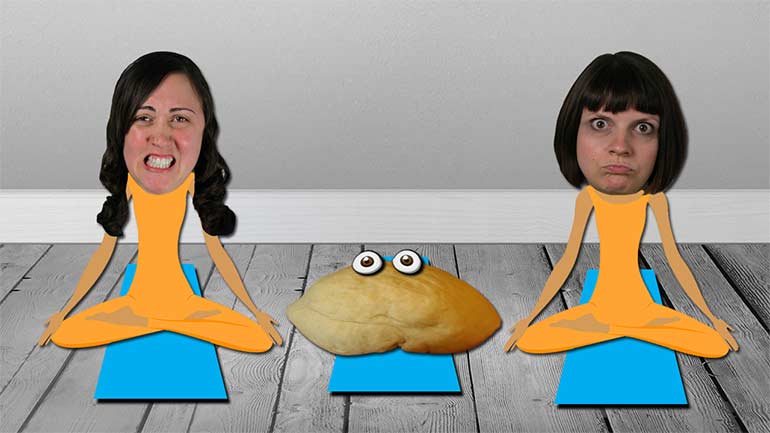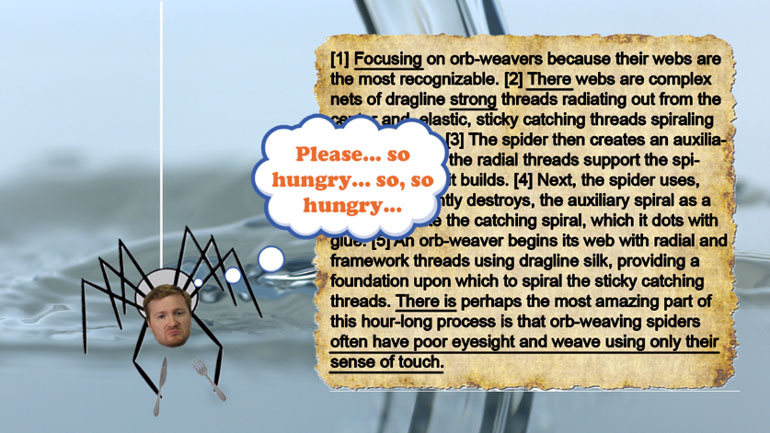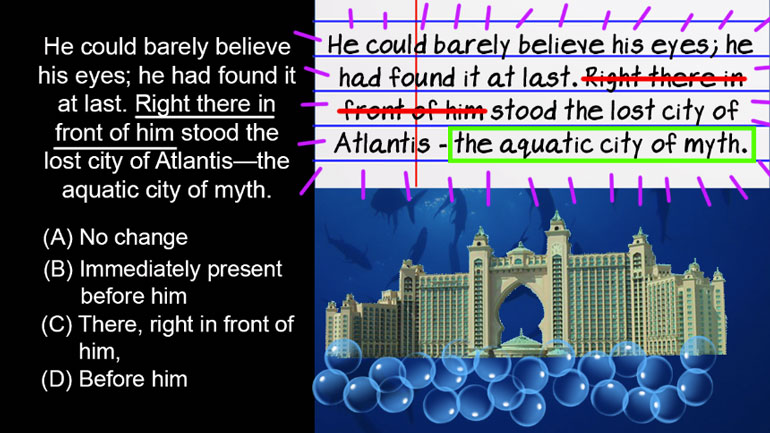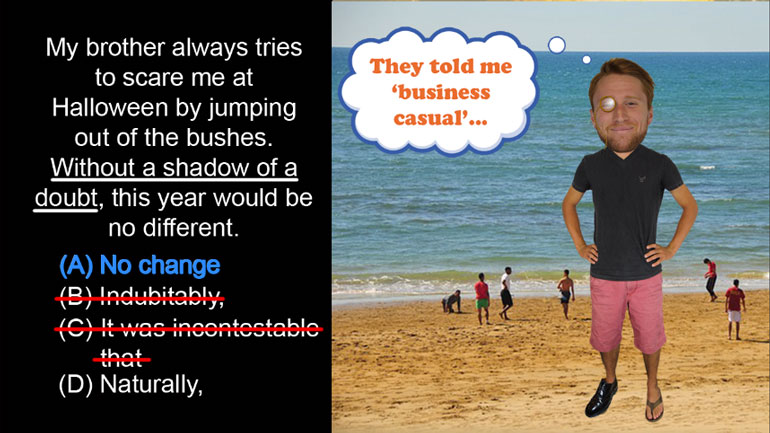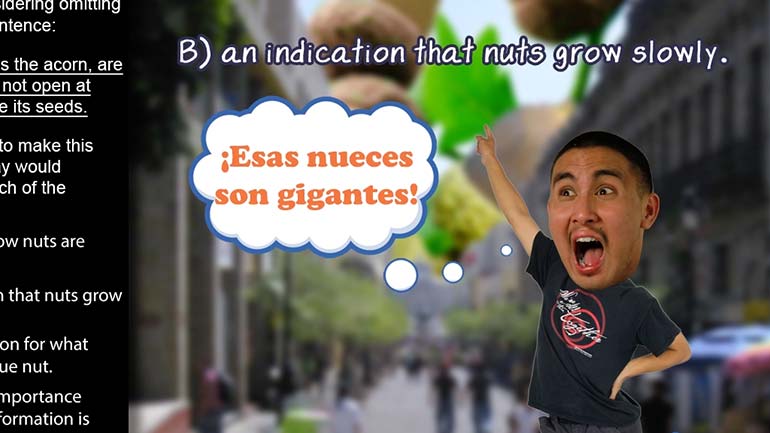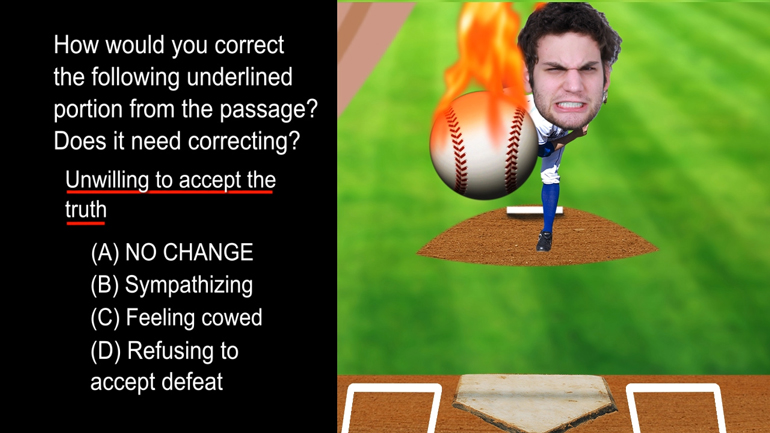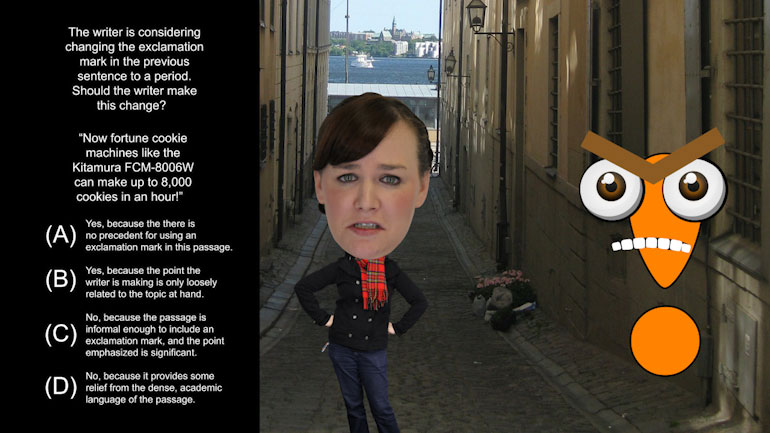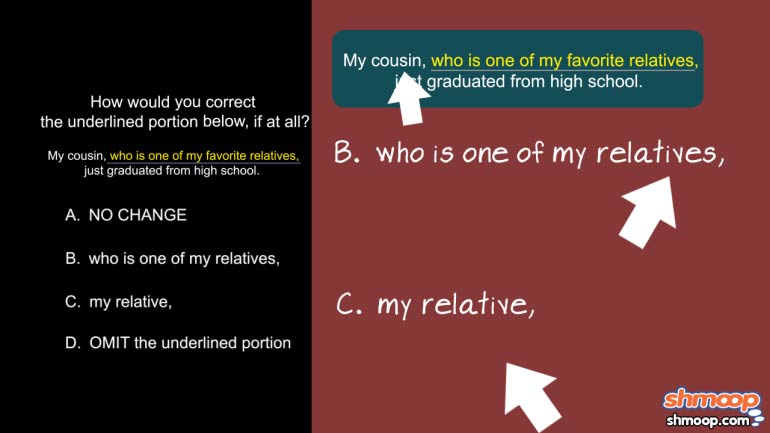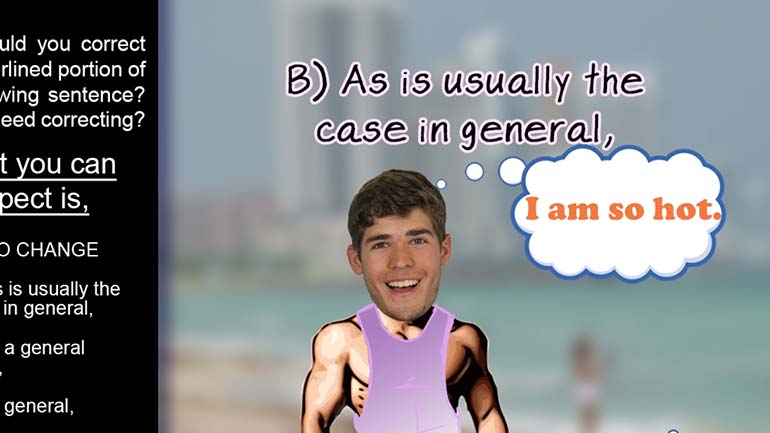ShmoopTube
Where Monty Python meets your 10th grade teacher.
Search Thousands of Shmoop Videos
Rhetorical Skills Videos 50 videos
ACT English: Passage Drill 2, Problem 11. Which of the following sentences would make the most effective transition?
In this ACT English passage drill determine if the writer of the passage may or may not have achieved their proposed goal.
ACT English: Passage Drill Drill 3, Problem 2. What would the paragraph lose if the writer omits the underlined phrase?
ACT English 1.11 Passage Drill 218 Views
Share It!
Description:
ACT English: Passage Drill Drill 1, Problem 11. How would you correct this introductory phrase?
Transcript
- 00:03
Here's your Shmoop du jour, brought to you by mature acorns. A more sophisticated kind of nut.
- 00:09
Check out the following passage and answer the question below.
- 00:28
How would you correct the underlined portion of the following sentence? Does it need correcting?
- 00:33
What you can expect is,
- 00:41
This question is looking for concision.
Full Transcript
- 00:46
The underlined portion is an introductory phrase, so its job is to set the stage for
- 00:51
the sentence to come. Usually, it's best to do this in as few words as possible. People
- 00:55
tend to tune out when it takes too long to get to the main event.
- 00:58
Choice (B) is redundant, making it an obvious elimination. "As is usually the case" and
- 01:04
"in general" get across the same basic meaning. Therefore, there's absolutely no need to use
- 01:08
both phrases--unless one enjoys being redundant.
- 01:10
(A) introduces the sentence with the phrase "what you can expect is." Not only is this
- 01:18
phrase wordy, it's also awkward because it implies that the rest of the sentence will
- 01:22
be in the future tense. If we're expecting something, that means it hasn't happened yet,
- 01:27
right? The verbs in the sentence--"are" and "buy"--are both in the present tense, so this
- 01:32
introductory phrase sets up a false expectation. Sorry, (A), but we hate being disappointed.
- 01:38
This brings us to choices (C) and (D), which offer the phrases "in a general case" and
- 01:42
"in general." Our choice isn't too hard since we know we want the shortest introductory
- 01:46
phrase possible. "In general" is the shortest option, making (D) the best answer.
- 01:51
The shortest option is often best, except in the NBA draft.
Related Videos
ACT English: Punctuation Drill 2, Problem 2. Where should the semi-colon be placed?
ACT English: Punctuation Drill 3, Problem 1. How should this sentence be changed so that it is grammatically correct?
ACT English: Punctuation Drill 3, Problem 2. How should we properly hyphenate the words in this sentence?
ACT English: Punctuation Drill 3, Problem 4. Which choice best formats this list of items?
ACT English: Punctuation Drill 2, Problem 1. Which choice of punctuation best completes the sentence?

